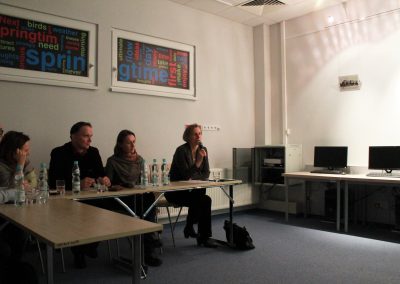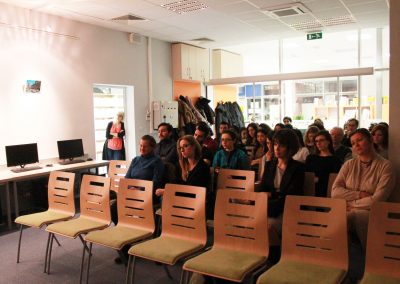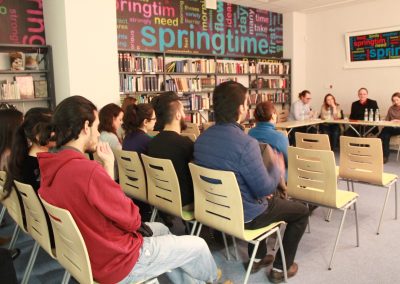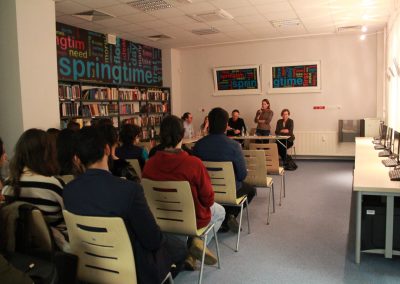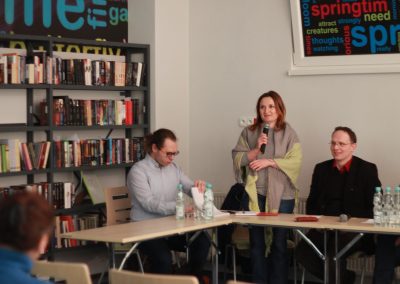On Wednesday we met in the Municipal Library Fil. 4 to participate in the debate entitled Gender ideology(ies): Man and woman – different by nature, inequal by society? We tried to find the answer to this question with our four guests: sociologists Borys Cymbrowski and Anna Czerner, philologist Katarzyna Molek-Kozakowska and biologist Elżbieta Pogoda.
We were aware that for most people the term gender is unfamiliar or even unfriendly, especially when someone is not a philologist or a social researcher, so we started with the basic questions: what gender is, how it exists in our respective fields of studies, and if there exists gender ideology. We can say that gender in general is about social consequences of being men, women or the others, because in the opinion of Elżbieta Pogoda even from a biological point of view there are more than only two sexes. And there is no evidence that one sex has an advantage over another.
In Polish media we encounter some false beliefs about the meaning of the word “gender”. But as Borys Cymbrowski mentioned it is a problem of confusion of nature with culture, because in the Polish language we have only one word (płeć) for gender and for sex. So some commentators confuse biological meaning with the cultural one. They accuse gender scholars of promoting a dangerous ideology which tries to convince people to choose their sex. As Anna Czerner said, the truth is that in the social sciences gender was a neutral category to analyse the relations between people in society, but unfortunately some institutions and politicians took one of the least popular topics in gender studies and used it as a basis to create and apply gender ideology as a political tool.
After that we focused mostly on language aspects within gender issues. Katarzyna Molek-Kozakowska indicated that for her it was easier to introduce herself in English than in Polish, because in Polish most names of academic professions have only a masculine gender, or even if it has a female gender, masculine forms sound more serious and more prestigious. But language is not a constant phenomenon – it is changing all the time. Twenty years ago we considered some female forms of words as strange, but today we take them for granted. We concluded that it is important to include more women-related forms to language, and it is one of the main catalysts of social changes in the public sphere.
We are really glad we could discuss it with you and with the citizens of Opole. We would like to thank you all for your presence and participation, and we hope to see you soon during another discussion. The aim of the whole debate was to clarify a little the problem of gender, but two hours is a short time when you are discussing such an important and complicated topic – so we treat this meeting only as a start. The debate is still open.
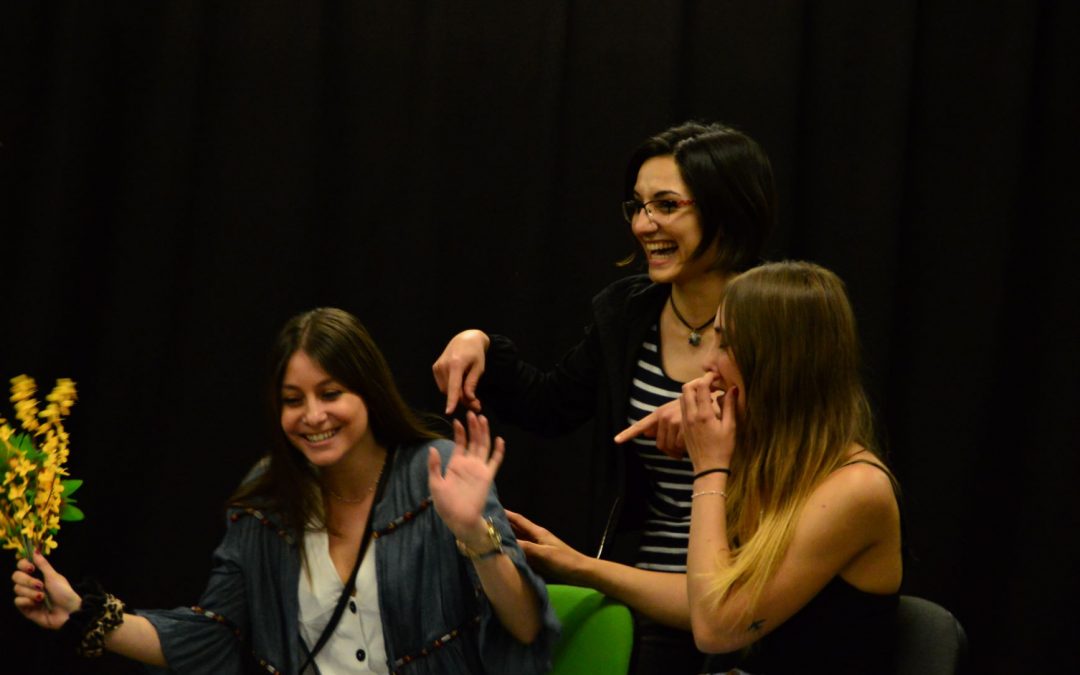
Another Forum Theatre performance – full audience and hot atmosphere
Another world is possible Last Monday, on May 27, in the Student Culture Center our Erasmus students showed another Forum Theatre performance – “Another World is Possible”. This time, this interactive event, dealt with the problems of islamophobia, homophobia and...
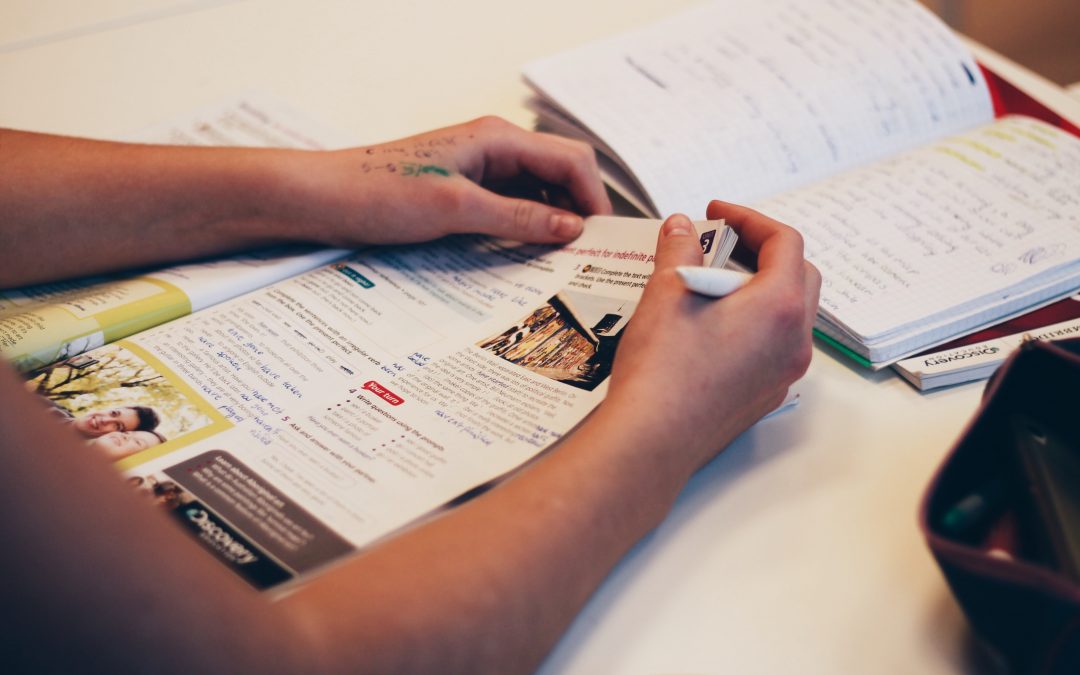
Exams and foreign language course registration
Dear Students, On the 29th of May, registration for the winter semester foreign language courses and summer semester exams will be opened. As usual, we advise you to go to USOSweb, look through the options in advance, and check your elegibility for the course....
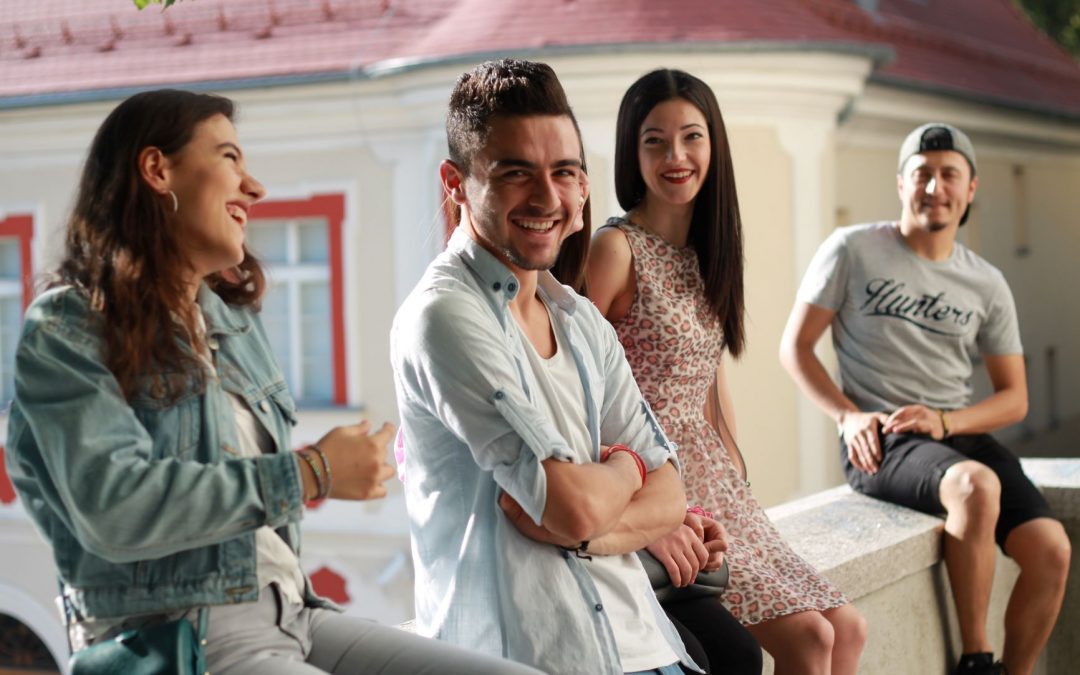
Additional recruitment for Erasmus+ mobilities
Dear Students The Erasmus+ Office has just announced an additional recruitment for mobilities for studies and traineeships abroad for summer term of the 2019/2020 academic year.* The recruitment will last from 20.05.2019 to 29.05.2019. Studies under the Erasmus+...
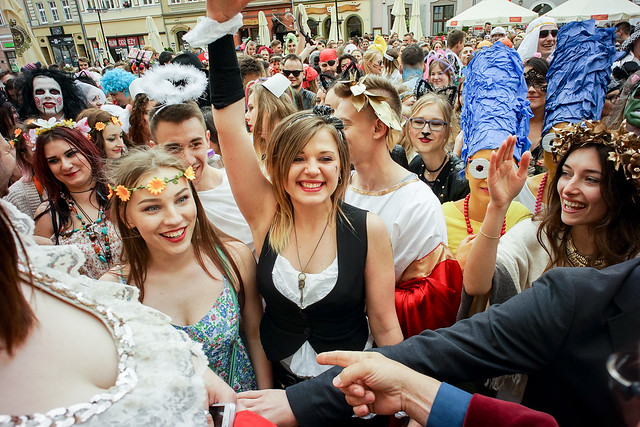
Piastonalia
A week of concerts, and various interesting events begins on the 20th of May. In only 5 days we begin "Piastonalia" - the Festival of Students. Numerous concerts, and events will take place on the UO campus (20-22.05) and Opole Technical University campus...
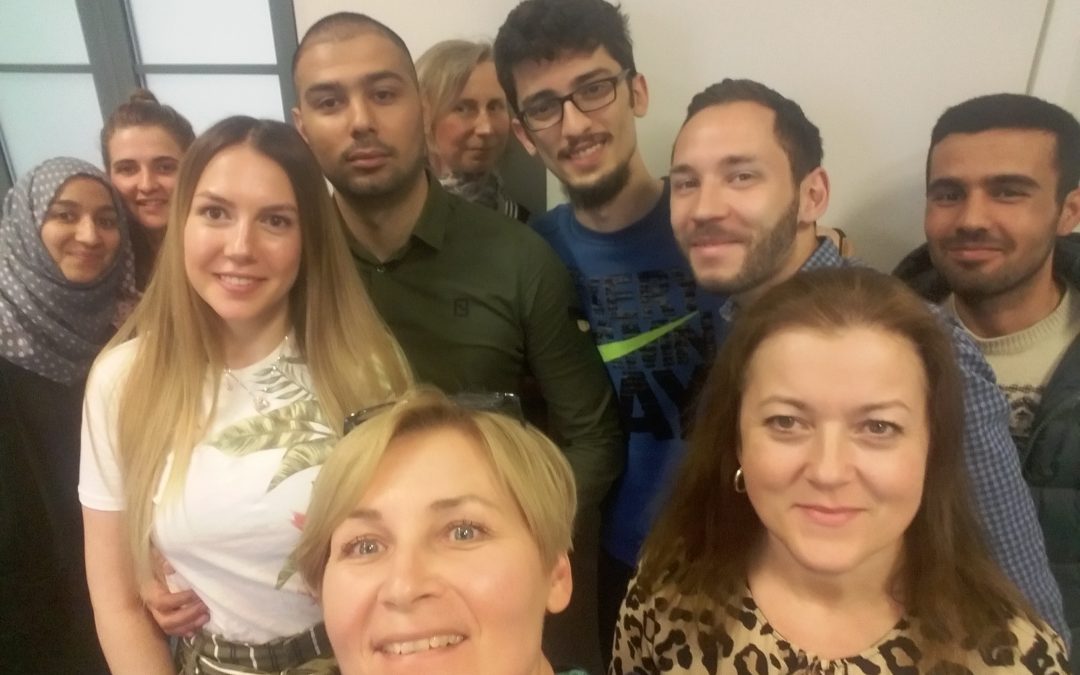
The first workshop on equal treatment
"How does it feel?" the first workshop for international students First workshops for international students are behind us – we have been talking about stereotypes, prejudices and discrimination, also in academic context. It’s been a good opportunity to share...
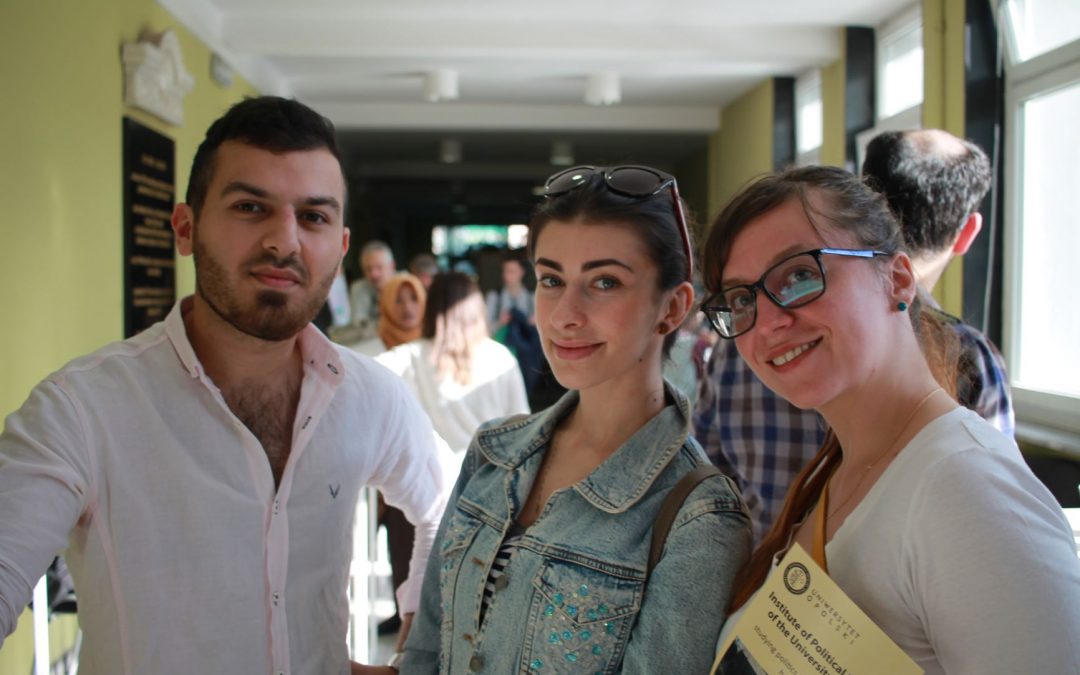
Erasmus+ Internship
Dear Students, The Erasmus+ Office invites you all to the meeting dedicated to internships abroad under the Erasmus+ Programme. During the meeting you will have a chance to find out: How to apply for the mobility? How to find a suitable place for a traineeship? How...
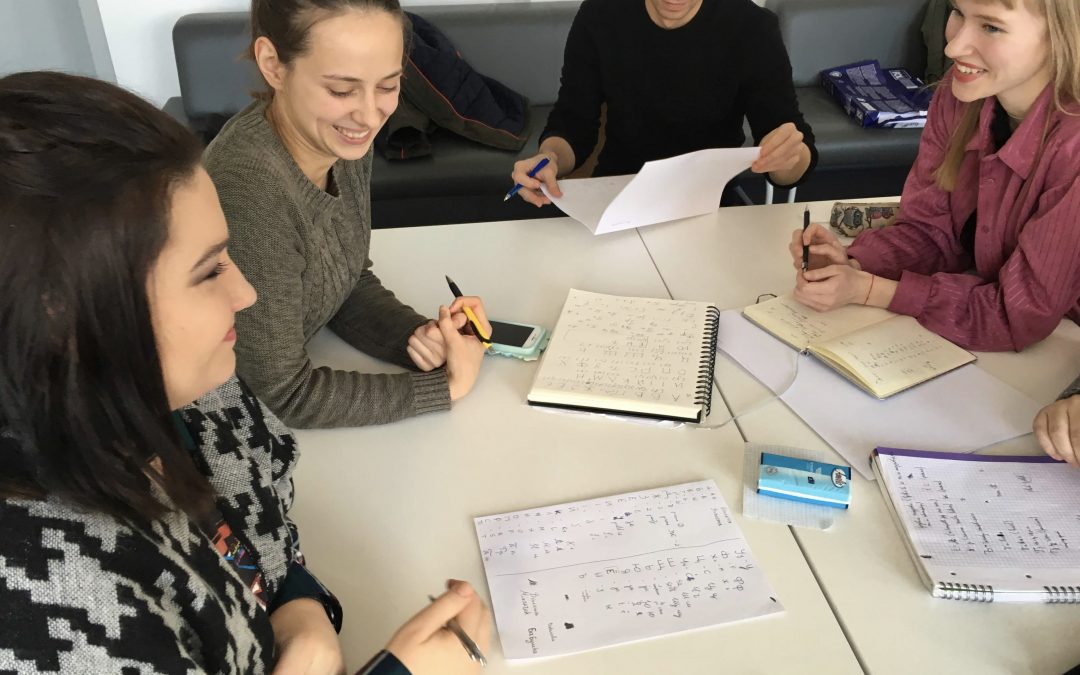
Variable Course Registration
Dear Students On the 6th of May, at 8 a.m., registration for the winter semester variable course was opened. As usual, we advise you to go to USOSweb and look through the courses in advance, because you will have to fish them out from the list where English and Polish...
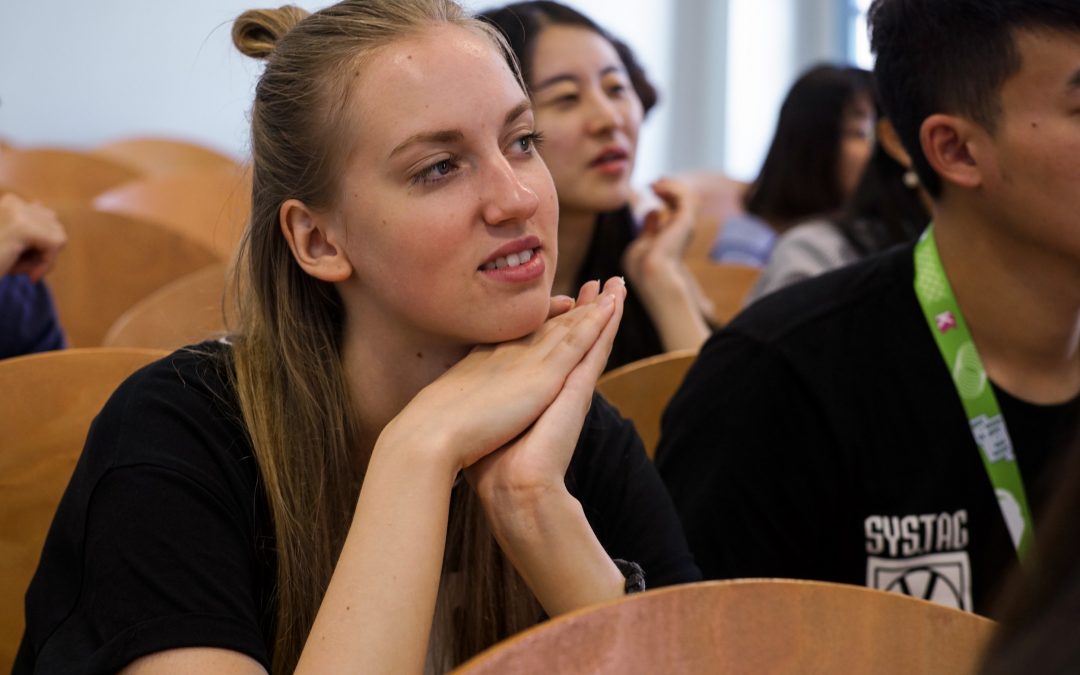
How does it feel? – workshops for foreign students of Opole University
Dear Students I am inviting you to the workshop devoted to equal treatment and social diversity issues at Opole University. During the event you will get knowledge about stereotypes, prejudices, discrimination and microaggression in different aspects of personal...
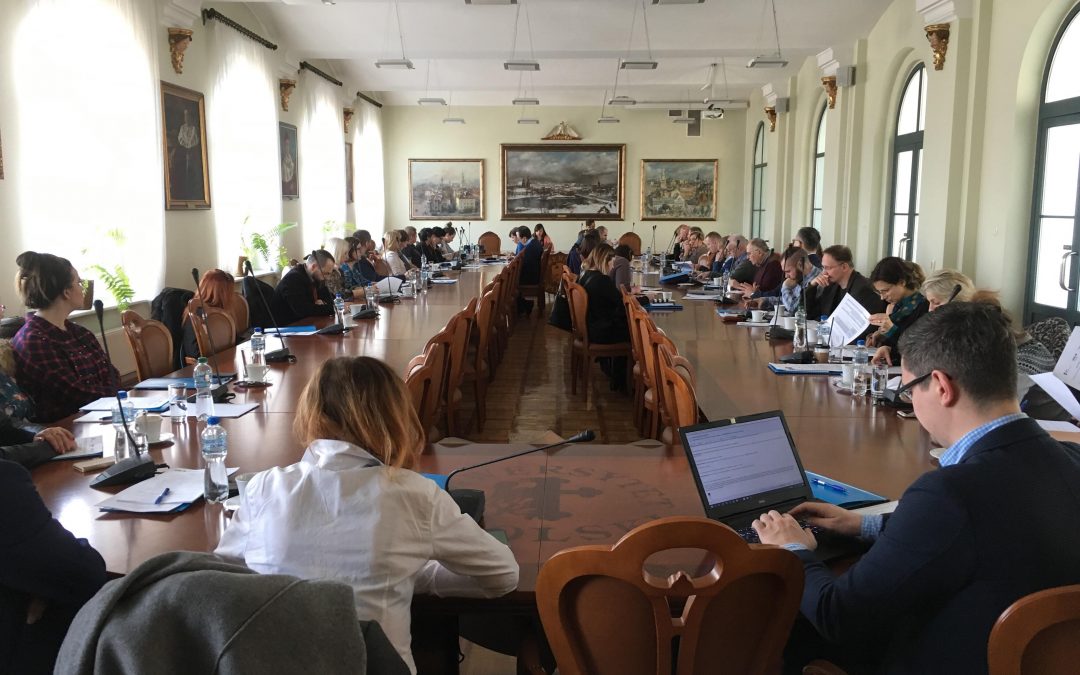
Welcome to UO! Szkolenie dla pracowników Uniwersytetu
Kolejne szkolenie dla pracowników UO w ramach Welcome to UO Dział ds. Badań Naukowych i Współpracy z Zagranicą po raz kolejny ma okazję serdecznie zaprosić pracowników Uniwersytetu Opolskiego do udziału w szkoleniu, organizowanego w ramach projektu NAWA pn....
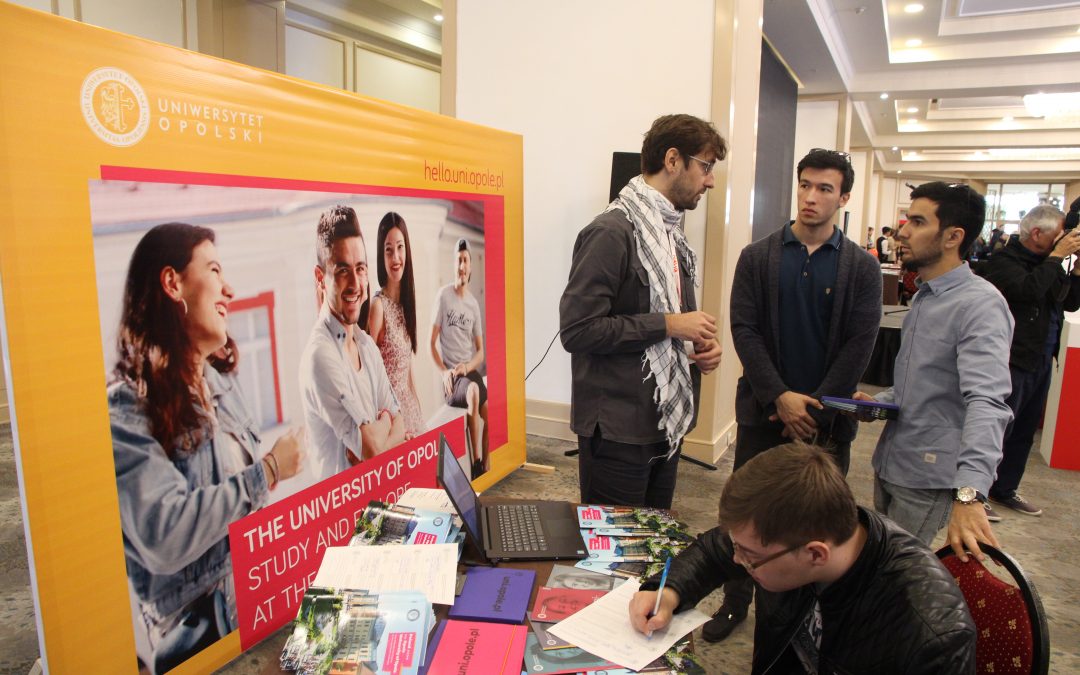
Polish Educational Mission in Uzbekistan
The University of Opole participated in the Polish Educational Mission in Uzbekistan Representatives of our university, Prof. Janusz Słodczyk, Vice-Rector for Research and Finace and Dr Michał Wanke, coordinator of the Section for International Study Programmes,...
